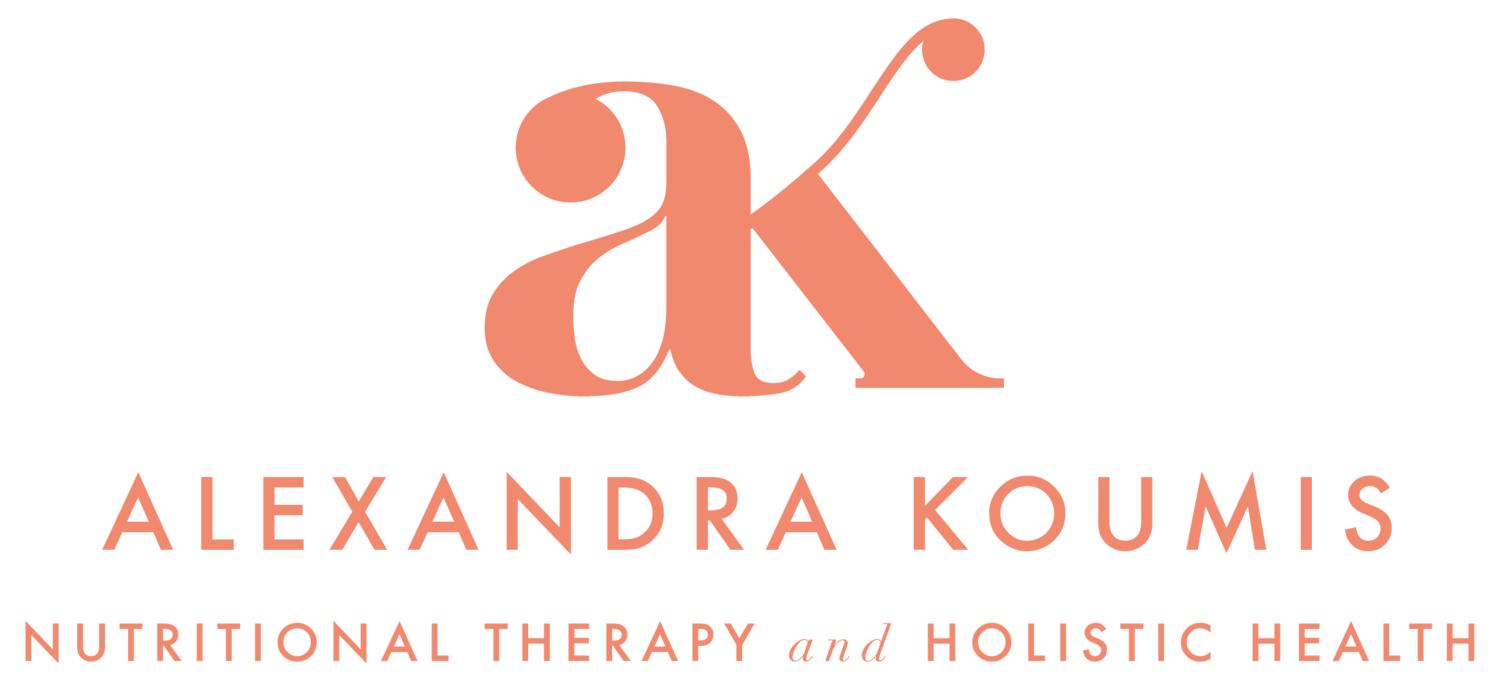Good Food - Good Mood
At times of unknown and uncertainty we can be more susceptible to the effects of stress on our body and mind. This feeling is perfectly normal as the body will down regulate numerous activities when stressed, which can leave us feeling pretty terrible.
When managing worries and concerns our thoughts can switch us from a state of calm into a stress response. This is our primal fight or flight response to fear of danger. This response is perfectly fine for acute (short term) danger such as being chased by a tiger. But when we have prolonged periods of stress we have sustained low grade stress response,
which lowers the function of essential systems in our body.
Mini stressors everyday can cause our body to remain in the ‘fear’ state. These stressors can be anything environmental, physical, mental or chemical which trigger a response from the body. This response, governed by our sympathetic nervous system, manages the bodies reaction to perceived danger by preparing it to fight, freeze or flee.
In this state the body releases lots of our stress response hormone called Cortisol. Cortisol sends messages around the body and organs to tell them danger is about. Cortisol releases glucose into the blood stream to provide fuel and increases blood circulation to our arms and legs to feed the muscles so we can run away quicker from danger. This redirects blood and nutrients away from our organs and lowers our digestion, brain function, immune function and reproductive abilities.
Ongoing long term stress disrupts us. It reduces our ability to think clearly, makes us exhausted, irritable, crave foods high in sugar and fat, and disrupts our blood sugar.
In addition, when we are stressed out our nutrients are depleted quickly. Digestion is also reduced which means we are unable to absorb our nutrients from our food properly or enough to enable the body to function correctly. So eating well to support our bodies in times of stress is vital to enable us to manage stress effectively.
There are plenty of nutritious foods that will help nourish your body and mind at times of stress.
Here are some of the top foods to include everyday.
Eat plenty of healthy fats
Healthy fats such as Omega 3 fats are key to supporting healthy cell membrane function in our brain, neurotransmitter production and nervous system integrity. Omega-3 fatty acids provide an ant-inflammatory action which helps to reduce inflammation that impacts our mental health and mood.
Omega 3 fats are found in fatty fish such as Salmon, Sardines and Anchovies and also Chia, Linseeds, Almonds and Walnuts.
Foods high in saturated fats can reduce cell membrane fluidity and function so reduce
processed animal products and eating lots of red meat.
Happy Gut , Happy You
Our neurotransmitters are chemical messengers which communicate throughout the body. Their signals influence our mood, regulate emotion, concentration, energy, alertness and sleep.
Serotonin is known as our happy neurotransmitter,
70% of which is actually made in our gut.
To ensure we are able to produce enough Serotonin we need to support our gut health. This means we need to have plenty of fibre, from wholegrains, beans, fruit and vegetables. These acts as a pre-biotic to feed the friendly bacteria in the gut.
We can also add fermented foods which are pro-biotics, which contain good bacteria – Sauerkraut, Kimchi, Kefir, Miso and Tempeh are excellent sources.
Eat adequate Protein
To create Serotonin and other essential neurotransmitters that support mood we need a good supply of protein,
which contain amino acids.
Tryptophan and Tyrosine and Phenylalanine are the key amino acids for these neurotransmitters, so plenty of good varied protein sources are required at every meal.
They are found in Turkey, Salmon and Chicken, Beans, Chickpeas, Chia seeds, Oats, Soy beans, Nuts and Seeds.
Increase your B-Vitamins
B-vitamins are really important for our mental health and mood they are also essential for energy. They are used in numerous processes in the body including creating neurotransmitters which control our brain chemistry.
B vitamins are water soluble, the body doesn’t store them, so we need to eat plenty of these every day to maintain adequate levels.
Sources of B vitamins include: Wholegrains, Dark leafy green vegetables, Bananas, Avocado, Oats, Quinoa, Nuts & Legumes.
Drink Green Tea
L - theanine is a great nutrient for calming the body and mind. It is found abundantly in Green Tea.
L- theanine is essential for the production of GABA which is our calming neurotransmitter. Green tea also has a relaxing effect on the body without drowsiness – so it is excellent for concentration. Try a cup earlier in the day instead of your usual coffee.
Create inner Calm
Natures calming mineral is Magnesium, it is essential for the body and is involved in 100’s of essential process.
It is especially needed in muscle relaxation and in the creation of our calming neurotransmitter GABA as well as serotonin.
Magnesium is found in all your green vegetables – Spinach, Kale, Broccoli, Asparagus and Brussel Sprouts. Legumes – which include Lentils, Chickpeas, Beans and Peas. Nuts and Seeds such as Pumpkin, Sunflower and Sesame seeds, Almonds, Cashew and Brazil nuts. Figs, Avocados and Bananas are also rich in Magnesium. Cacao is also full of Magnesium - opt for dark and raw chocolate to get the benefits.


